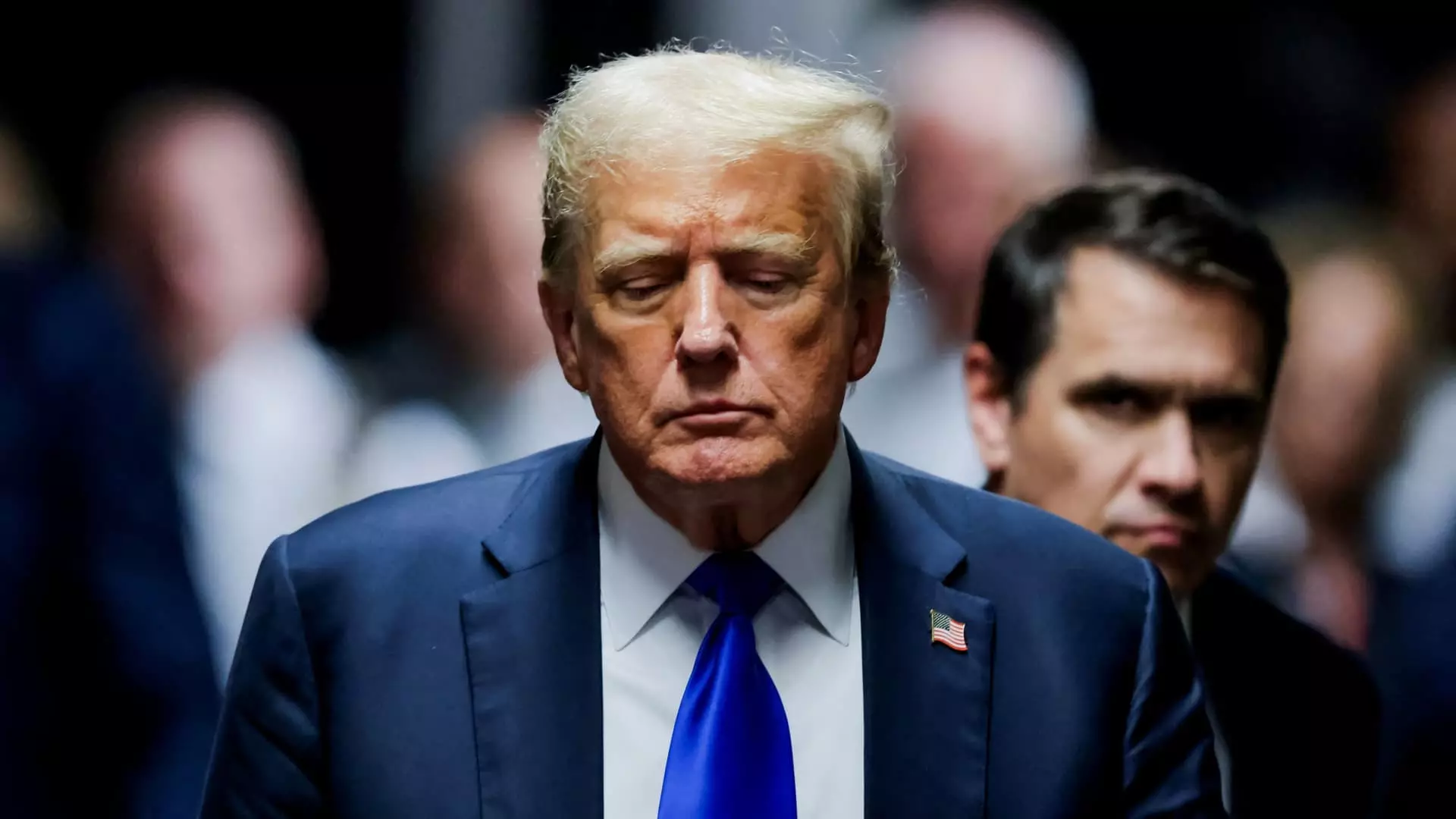The legal predicament surrounding former President Donald Trump has continued to capture public interest, especially as he navigates his recent conviction. In an environment already rife with politically charged sentiments, the Manhattan Supreme Court’s refusal to dismiss his hush money case emphasizes the tangled interplay between law, politics, and executive privilege. As Trump faces multiple lawsuits and criminal charges, understanding the implications of the court’s decisions and his legal strategies provides valuable insights into the evolving landscape of American jurisprudence.
In May, Trump was convicted of 34 felony counts related to falsifying business records linked to a $130,000 payment made to adult film actress Stormy Daniels. This payment was allegedly orchestrated by Trump’s then-personal lawyer, Michael Cohen, just before the 2016 presidential election, aiming to silence potential public scandal about an alleged affair. Despite Trump’s assertions of innocence regarding the affair, the court upheld the idea that his actions constituted a disturbing manipulation of legal documents that misled financial authorities.
This conviction marks a historic moment, as Trump became the first former president to be found guilty of a crime. The legal ramifications of this ruling are profound, as they challenge the notion of presidential immunity and raise questions about accountability for public officials. The gravity of accusations against Trump cannot be understated, as they signal not only a law enforcement endeavor but also a pushback against an era where the lines between personal conduct and public service became alarmingly blurred.
In Monday’s ruling, Judge Juan Merchan dismissed Trump’s appeal for presidential immunity concerning the hush money conviction. Trump’s legal team argued that recent Supreme Court interpretations favor presidential immunity against criminal charges stemming from official duties. However, Merchan’s strong rebuttal underlines the inherent complexity of applying such a blanket form of immunity.
Merchan articulated that the nature of the evidence presented, particularly regarding business records, diverges significantly from acts falling within the scope of a president’s official duties. He emphasized that personal misconduct does not cloak itself in immunity, a sentiment that highlights a pivotal legal distinction impacting Trump’s case. The judge’s statement that any error regarding the evidence was “harmless” in light of substantial evidence of guilt further complicates Trump’s position. The repercussions of this ruling suggest that despite Trump’s former office, he remains subject to the same legal scrutiny as any private citizen.
The broader implications of Trump’s conviction on American politics cannot be overlooked. The intense public discourse reveals a sharp division between supporters who view the prosecution as a politically-motivated “witch hunt” and detractors who argue for the necessity of legal accountability regardless of political position. Trump spokesperson Steven Cheung’s vehement criticism of the judge’s decision echoes sentiments that many hold, reinforcing the narrative of victimization in the face of legal action.
This charged atmosphere has direct effects on Trump’s ongoing political aspirations as he positions himself for electoral engagement in a post-presidential landscape. Claims of injustice may rally his base, but they simultaneously risk alienating moderate voters who prioritize ethical standards in governance. The ever-present question remains whether Trump’s legal woes will hinder his political ambitions or galvanize a new wave of support driven by loyalty and grievance.
As Trump awaits potential sentencing, his legal team continues to explore avenues for appeal. The outcome of these processes remains uncertain, compounded by the ongoing nature of related investigations. Trump’s legal troubles illuminate the contrasting dynamics between legal accountability and political resilience. As he endeavors to mount a comeback in the political arena, the ramifications of this conviction and the overarching legal battles will undoubtedly shape his strategies and the discourse surrounding his future.
The complexities of Trump’s legal battles and the courts’ stances illustrate a defined encounter between law and executive privilege. The ruling on his conviction serves as a salient reminder that no individual, regardless of position, is above the law. Whether Trump’s defiant approaches will yield favorable outcomes or further entrench his legal challenges depends significantly on the intertwined fate of justice and power in the United States.

